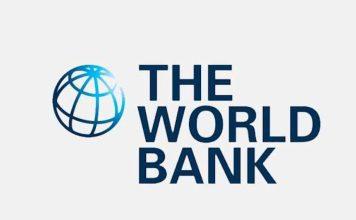A one-day workshop aimed at raising awareness among stakeholders about the risks associated with female genital mutilation and gender-based violence was conducted on Tuesday by the World Bank in partnership with the government of Nasarawa State.
Leaders from the community and religion from each of the state’s thirteen local government areas attended the session.
According to the Nigeria COVID-19 Preparedness and Response Project, a World Bank-assisted project, the state’s rising gender-based violence cases and other problems impacting girls make this endeavor essential.
Esther Yonah, the state’s Gender Pillar Head of CoPREP, voiced concerns at the sensitization session in Lafia regarding the detrimental effects of female genital mutilation and gender-based violence on women’s self-esteem in the state.
According to Yonah, despite numerous attempts to raise awareness, women’s rights have been the most violated and overlooked, which is why the session was necessary.
“There have been a lot of issues concerning Gender-based Violence, sexual exploitation and sexual harassment, that was why the World Bank supported Nasarawa State through the Center for Disease Control to implement this project in the state.
“Sometime in February, we were able to call stakeholders here (Lafia) to develop the state’s action plan to ensure that the people are safe in their workplaces, schools and communities,” she said.
Therefore, in order to regain the trust of numerous oppressed women throughout the state and to prevent such incidents in the future, she made a plea to the stakeholders to demonstrate their commitment to the battle against gender-based violence and female genital mutilation in their local communities.
“So today, we had to step down this action plan to the stakeholders at the community level. Now that they have been trained, they will have to develop their comprehensive plans in their various communities to tackle issues relating to gender-based violence and other matters affecting the girl child,” she added.
Justina Allu, the Director of Public Defender at the Nasarawa State Ministry of Justice, expressed her disdain of the issue of young girls in society dressing indecently.
In order to address the problems of sexual harassment and molestation, among other things, Allu called for a shift in behavior.
She said, “For the students and other young ladies moving around naked, they should know that it is an offence in section 26 of the Violence Against Persons Prohibition Law in the state.
“Whoever is seen naked on the street commits an offence and the punishment is one-year imprisonment or a 100,000 fine or both. So all the ladies exposing their bodies should be aware that it is not allowed by the law.”
Prior to this, Adams Maka-Namgba, the District Head of the Wakama electoral ward in the Nassarawa-Eggon LGA, spoke on behalf of the others and thanked the workshop organizers. He also pledged to do their utmost to provide solutions to the problems that women in the state face.
Nigeria reported 27,698 occurrences of sexual and gender-based violence in 2023, according to Sunday Agbakaba, the data manager for the Federal Ministry of Women’s Affairs.
